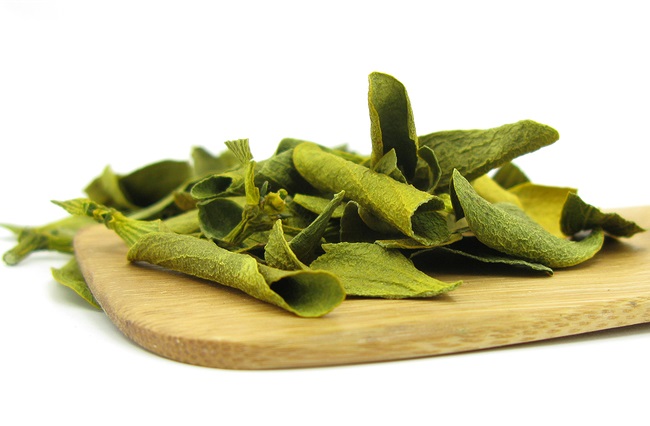- Make It Yourself Lavender Heart-Shaped Bath Bombs!
- 20 Things You Never Knew About “Down There”
- 12 Best Foods For Those Suffering From Arthritis Pain
- 12 Personal Hygiene Mistakes Almost Everyone Makes (Mom Never Told You About #4!)
- 15 Medicinal Plants And Herbs From The Cherokee People
- 12 Mind-Blowing Benefits Of Drinking Coconut Water During Pregnancy
- 12 Outstanding Winter Foods That Won’t Fatten You Up Like A Christmas Turkey
Fighting Cancer with Mistletoe Extract
Many of us love the ageless tradition of standing under the mistletoe to get a little smooch from someone special to us, but this year there’s more reason to love mistletoe than ever before. Mistletoe extract is just now becoming well known as a remarkable plant that has many healing properties.
European mistletoe (viscum album) is a parasitic plant that grows on several types of trees in many places throughout the world. Its berries and stems have been used in herbal medicines for many hundreds of years. Take note that the mistletoe that grows in America is very different than the European mistletoe. American mistletoe is generally used only as a holiday decoration.
When speaking of herbal medicine, you will find mistletoe is generally used for the following 5 health conditions.

Photo credit: bigstock
1. Hepatitis C
Although using mistletoe will not cure hepatitis C; a study done in 2005 showed that persons with hepatitis C who used mistletoe on a daily basis had dramatic improvements in liver inflammation and therefore, improvements in their quality of life. Find out simple juice mixes that will cleanse your liver.
2. Muscle Relaxant
Mistletoe is very effective in relaxing the muscles within the body, especially the deep tissue muscles that surround the uterus, intestines, and arteries. This is most beneficial for those suffering from dyspepsia, indigestion, and cramps. After a hard workout, drinking a cup of mistletoe tea will help the muscles relax and allow you to sleep better later.
3. Anti-microbial and Antibacterial
Mistletoe tea is excellent for washing wounds or for any lesions where there might be a danger of infection. It also makes an excellent compress for varicose veins. Using mistletoe tea to wash the face can reduce acne and pimples.
READ ALSO how to use lemons instead of beauty products.
4. Diabetes Treatment
Research studies have shown that mistletoe tea could be useful in managing diabetes. A study done on rats in 2009 showed that these diabetic animals, when given mistletoe, had dramatic decreases in their blood sugar levels. It also increased the secretion of insulin. It’s important to note that since this was an animal study only, you should always check with your doctor first before using.
5. Cancer Treatment
Two years ago, a woman with non-Hodgkin’s’ lymphoma tried mistletoe as her first line therapy before she tried chemotherapy. This woman, who lived in Great Britain, and her doctor, found that the therapy worked. Her cancer went into full remission.
Last year a patient who had cancer that had spread to her lymph nodes and liver, began taking mistletoe extract along with her chemotherapy and surgery. She showed only partial remission after 37 weeks. She stopped chemotherapy, but continued taking mistletoe. 10 months passed and the tumor still showed no progression. This type of result is very rare for this type of aggressive cancer.
Despite some encouraging results, such as the ones above, traditional medicine has been very slow to show any interest in using mistletoe.
Although the mistletoe plant in and of itself can be quite poisonous (more than 2 berries or 3 leaves can be toxic) once extracted properly, mistletoes active ingredients are safe to use. It’s important to use an extract that uses the entire plant.
One large study, done in Germany, found that cancer patients, who used mistletoe extract, extended their lives by more than 40 percent. A recent meta-study that involved 49 trials also showed that, besides a general improvement in their quality of life, cancer patients who took mistletoe extract also had extended survival rates.
As a result of this evidence, two large studies have been initiated in Europe, where mistletoe use is quite common. One test will be performed in Germany, the other in Austria. One test will involve more than 800 colorectal cancer patients, while the other will test mistletoe on more than 400 patients who have pancreatic cancer. Both tests will use mistletoe extract in addition to, not instead of, traditional cancer therapies. Until these two studies are completed, however, with the evidence we have on hand today, mistletoe makes a strong case for its use in any cancer treatment.
Sources:






























